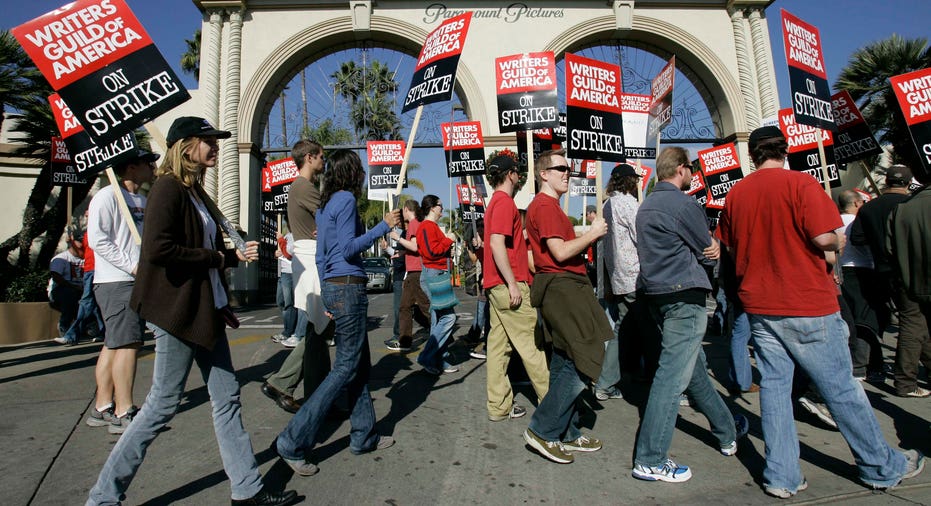Writers' Strike Averted in Last Minute Deal

Labor negotiations between screenwriters and entertainment producers resulted in an unexpected Hollywood ending.
After weeks of acrimonious talks between the Writers Guild of America and the Alliance of Motion Picture and Television Producers, a tentative new deal was reached early Tuesday morning shortly after the clock ran out on the old pact.
Hollywood has been on edge fearing a work stoppage that would have put nearly 12,000 writers on strike and paralyzed the entertainment industry and a significant section of the Southern California economy. The last writers' strike, a 100-day stoppage nearly 10 years ago, cost the entertainment industry and California economy $2 billion, according to the Milken institute.
Instead, a new three-year agreement could keep TV shows and movies in production. The issues that had divided the two sides included a basic wage increase for all writers and the length of exclusive contracts between writers and shows. Writers also wanted the minimum writing fees for streaming and cable services to be on a par with the minimum fees for a broadcast network.
Another sticking point: the writers' guild's financially strapped health-care plan, which the union fiercely protected but the studios say is too generous and needs new cost-control measures.
Screenwriter Billy Ray, a member of the Writers Guild negotiating committee tweeted that the writers made, "big gains that will help many writers."
An accord is good news in particular to the broadcast and cable networks who are preparing to present new fall lineups to advertisers in the coming weeks. An extended strike would have halted production on new and returning shows and delayed the start of the TV season in September. There was also a strong possibility that many advertisers would have withheld money because of the uncertainty of the labor situation.
Averting the strike means the late night shows and "Saturday Night Live" won't shut down. If there had been a strike, shows such as NBC's "The Tonight Show with Jimmy Fallon" and CBS's "Late Show with Stephen Colbert" would have stopped and been replaced with reruns.
The Writers Guild is expected to brief its members on the new accord on Thursday.
Write to Joe Flint at joe.flint@wsj.com and Erich Schwartzel at erich.schwartzel@wsj.com



















